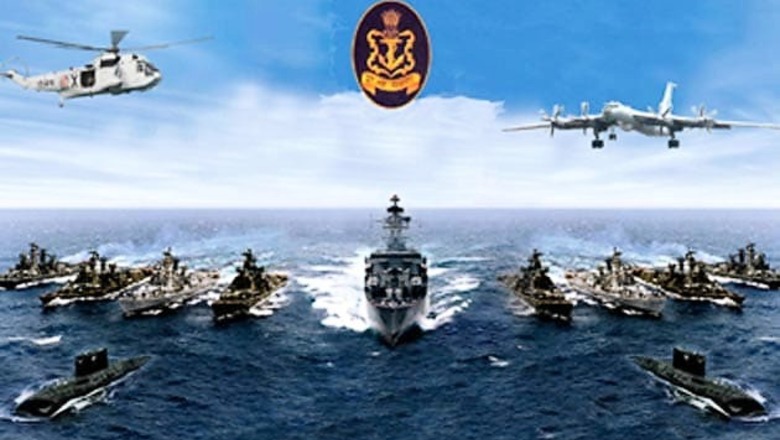
views
New Delhi: Indian Navy is smaller than the Indian Air Force and has just 58,350 personnel. It has seen 21 chiefs in the last 60 years. But, the Navy has not always been a quiet, non-controversial organization. It has seen many controversies and has been in the news for wrong reasons on many occasions in the past 15 years. It has actually been a very bad one and a half decade for the Navy.
Admiral Vishnu Bhagwat's sacking by the NDA government in December 1998 had shocked the nation. The then Prime Minister A B Vajpayee had ordered his sacking after Vishnu Bhagwat allegedly defied the government on many occasions.
The public spat between the then Defence minister George Fernandes and Admiral Vishnu Bhagwat had caused a huge embarrassment for the government and the Navy. Admiral Bhagwat had refused to accept a Cabinet order appointing Vice Admiral Harinder Singh as his deputy. It was described as unprecedented in the history of three services and the sacking was also publicly condemned by opposition and the public. Many had warned the government that it would set a very bad precedent.
Admiral Sushil Kumar who succeeded him had to face corruption charges. Even the CBI had named him in an FIR related to the alleged corruption in the purchase of Barak 1 Missiles system. It was a part of 'Tehelka' expose. But, in 2013 the CBI closed investigation due to lack of evidence.
Admiral Arun Prakash also faced allegations in connection with the naval war room leak and the Scorpene submarine deal. Admiral Arun Prakash strongly protested linking of his name to the alleged scam and even took on the magazines and newspapers, which carried articles on him. His colleagues claim that Admiral Arun Prakash is an outstanding navy chief and the allegations against him were highly motivated.
Admiral D K Joshi was a very low profile chief of naval staff in the recent times. He mostly kept to himself and rarely appeared in public or before the media. To his bad luck, several mishaps happened during his tenure.
Submarine INS Sindhrakshak sank near the naval dockyard in Mumbai last year killing several seamen. There have been three major accidents involving submarines in the last seven months. Admiral Joshi had to face the heat of the media and the government after the incident. Finally, INS Sindhuratna, which met with an accident on Wednesday forced him out of Navy's chief's office in the South Block.
Admiral joins the league of service chiefs like General K S Thimmaiah (his resignation over differences with the government was not accepted) and General P N Thapar (he quit over India's humiliating defeat in the 1962 Indo-China war) who quit for different reasons in the 1960s.
As a veteran navy man and retired Commodore C Uday Bhaskar says Admiral Joshi displayed a lot of courage to resign as the Navy chief taking moral responsibility for the accidents. He feels that the service chief quitting over accidents is unprecedented and the entire country must respect his conviction and courage.
Admiral Joshi has showed the moral courage to own up and quit. But, what about the political masters? Are not they equally or more responsible for the sorry state of affairs?



















Comments
0 comment